I think reasoning in the opposite way could be more intuitive:

You start from a certain n₀, that is the lowest positive number recognized, and at each step (i.e., for each unit of time t) you multiply it by 2 until, at a certain time t*, you reach a certain n*, that in your question corresponds to the original value of n.
The value of n* will be:
n₀*2*2*2*2*2*...*2*2*2*2*2
|___number of steps___|
i.e., n* = n₀*2^(t*). In general, we have that n = n₀*2^t and, reasoning asymptotically, since n₀ is a constant factor, we have that n∈O(2^t).
Thus, doing a re-inversion, we have that the time complexity is logarithmic w.r.t. n (indeed, it is O(log₂(n))).
